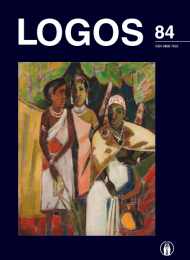Krikščioniškojo Sielos Nemirtingumo Klausimo Traktavimo Ypatumai
Peculiarities of the Treatment of the Christian Question of the Immortality of the Soul
Author(s): Rimas SkinkaitisSubject(s): Christian Theology and Religion, Metaphysics, Existentialism, Philosophy of Religion
Published by: Visuomeninė organizacija »LOGOS«
Keywords: soul; body; immortality; relation;
Summary/Abstract: The article analyses the problematic of the immortality of the soul while describing how this issue is interpreted by Reformation theologians and prominent theologians of the Catholic Church. When talking about the human’s afterlife, the Catholic Church uses the notion of the “immortality of the soul”. The Church teaches that soul remains in after death and before the final judgement it is reunited with the body and lives in the state of either eternal happiness or condemnation. The Church describes the soul using the category of substantiality. Many Reformation theologians maintain that the soul is not and cannot be immortal, because it is God’s creation and all creations are mortal. Such theologians as C. Stange, P. Althaus, K. Barth, E. Brunner and others state that the whole human dies - both body and soul. They will be revived only at the end of the world during Christ’s Parousia. These theologians consider that the immortality of the soul is an unacceptable Platonic dualism that sets body and soul against one another which is contradictory to the Biblical revelation. Therefore, according to these theologians, the human soul is not innately immortal nor invincible to death. The soul’s immortality is a result of God’s initiative and so is a gift of grace in His eternal relation with humans. J. Ratzinger presents the Catholic interpretation of the immortality of the soul. He proposes that the most suitable treatment of immortality is dialogue.
Journal: LOGOS - A Journal of Religion, Philosophy, Comparative Cultural Studies and Art
- Issue Year: 2015
- Issue No: 84
- Page Range: 26-37
- Page Count: 12
- Language: Lithuanian

